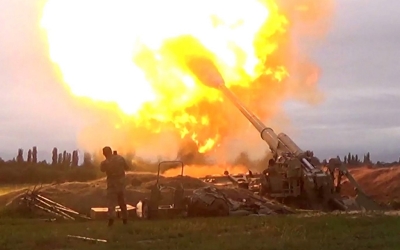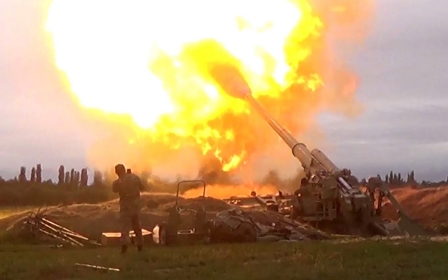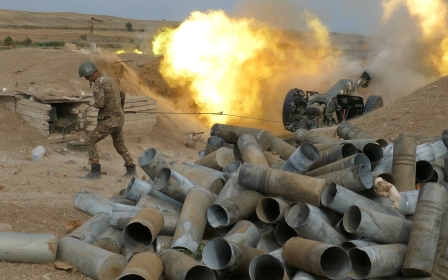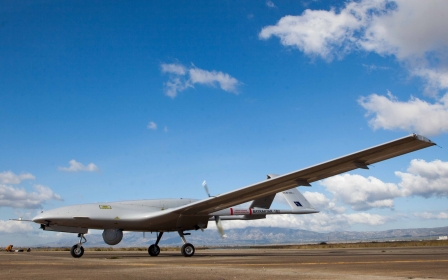Israeli-made cluster bombs used by Azerbaijan in Nagorno-Karabakh, says Amnesty
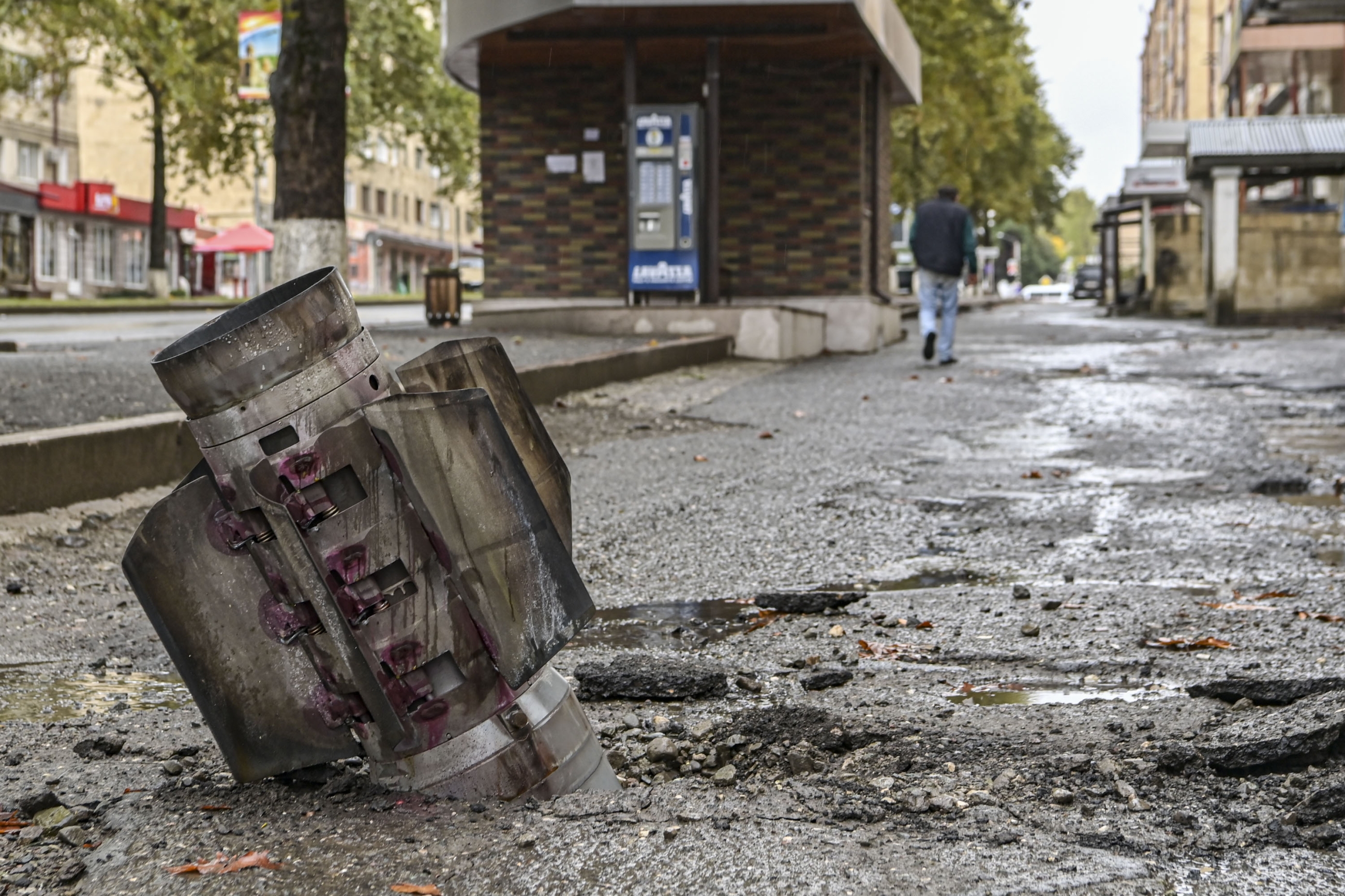
Israeli-made cluster bombs are being used by Azerbaijan against civilians in the breakaway region of Nagorno-Karabakh, Amnesty International warned on Tuesday.
Analysing footage obtained from the region's capital Stepanakert, the rights group identified Israeli-made M095 DPICM cluster munitions which, it said, "appear to have been fired by Azerbaijani forces" towards residential areas of the city.
New MEE newsletter: Jerusalem Dispatch
Sign up to get the latest insights and analysis on Israel-Palestine, alongside Turkey Unpacked and other MEE newsletters
The weapons typically scatter submunitions over a wide area where they often fail to explode, posing a longterm threat to civilians.
Over 100 countries have signed a ten-year-old convention banning the use of the munitions, but neither Armenia, Azerbaijan or Israel are signatories.
"The use of cluster bombs in any circumstances is banned under international humanitarian law, so their use to attack civilian areas is particularly dangerous and will only lead to further deaths and injuries," Denis Krivosheev, Amnesty's acting head of Eastern Europe and Central Asia, said in a statement.
Amnesty's warning comes after seperatist forces in the ethnically Armenian enclave reported clashes along the frontline, and said the capital had again come under artillery fire.
Nagorno-Karabakh broke away from Azerbaijan in the 1990s, prompting a long unresolved conflict that has seen tens of thousands of people killed.
Both Turkey and Israel have fervently supported Azerbaijan's claims to territorial integrity, while Armenia has been historically closer to Iran and Russia.
Middle East Eye delivers independent and unrivalled coverage and analysis of the Middle East, North Africa and beyond. To learn more about republishing this content and the associated fees, please fill out this form. More about MEE can be found here.


